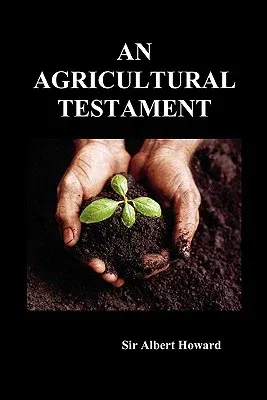An Agricultural Testament, Sir Albert Howard's best-known book, is a
classic of organic farming and an essential introduction to organic
gardening and farming.
"The health of soil, plant, animal and man is one and indivisible." -
Albert Howard.
At the turn of the twentieth century, chemical fertilizers seemed to
offer limitless potential in agriculture. However, when British
agriculturalist Albert Howard travelled to India as Imperial Economic
Botanist to the Government of India, he observed Vedic agriculture as
practiced by India peasant farmers, and noted the health benefits to
plants, animals and humans from what we now call organic agriculture.
Albert Howard, Rudolph Steiner and Lady Eve Balfour are considered the
first proponents of organic agriculture.
In his own words: "The soil is, as a matter of fact, full of live
organisms. It is essential to conceive of it as something pulsating with
life, not as a dead or inert mass. There could be no greater
misconception than to regard the earth as dead: a handful of soil is
teeming with life. The living fungi, bacteria, and protozoa, invisibly
present in the soil complex, are known as the soil population. This
population of millions and millions of minute existences, quite
invisible to our eyes of course, pursue their own lives."
"The first duty of the agriculturalist must always be to understand that
he is a part of Nature and cannot escape from his environment. He must
therefore obey Nature's rules," Howard wrote. He believed that the
farmer must work with nature instead of with chemical fertilizers and
pesticides for long-term sustained yields. Howard's belief in the
importance of manures, compost and mycorrhizal fungi is now generally
accepted, and is echoed in the organic gardening motto, "Feed the soil
not the plant."
Anyone interested in permaculture or organic gardening and farming will
find this a fascinating book.
Sir Albert Howard (1873 - 1947) was an English botanist. He studied
at Cambridge University as a Foundation Scholar and lectured in the West
Indies and the United Kingdom. From 1905 to 1924 he was Imperial
Economic Botanist in India. He promoted organic methods through the
Rodale Institute in the USA and the Soil Association in the UK and is
one of the pioneers in the field.


